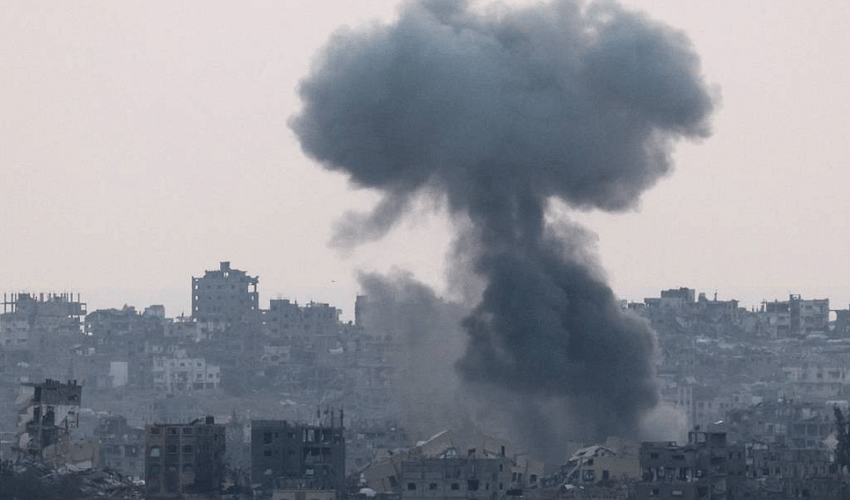World
Israeli Cabinet approves broadening of Gaza military operation, according to broadcaster Kan

JERUSALEM — Israeli Prime Minister Benjamin Netanyahu's security cabinet has approved a phased escalation of military operations against Hamas in Gaza, Israeli public broadcaster Kan reported on Monday (May 5), citing informed sources. The Israeli Defense Forces have begun mobilizing tens of thousands of reservists in preparation for the expanded campaign, army chief Lieutenant General Eyal Zamir announced in a statement on Sunday.
In a video posted on X, Netanyahu said he had called a meeting of the security cabinet to determine “the next stage” of the war in Gaza. This came just hours after a missile fired from Yemen by the Iran-aligned Houthi militia landed near Ben Gurion Airport, Israel’s primary international gateway. “We are ramping up pressure with the aim of bringing our hostages home and defeating Hamas,” Zamir told soldiers, according to the military’s statement.
Israel resumed its ground assault in Gaza in March following the breakdown of a U.S.-mediated ceasefire that had paused hostilities for two months. Additionally, Israel’s security cabinet has approved a revised aid distribution strategy for Gaza, Ynet news reported, though it remains unclear when humanitarian supplies will be allowed into the region. Israel currently controls about one-third of the Gaza Strip and is facing mounting global criticism over its blockade, which was implemented in March. Israeli officials argue that Hamas has been intercepting humanitarian aid meant for civilians and diverting it to its fighters or selling it—a claim Hamas denies.
Israel’s offensive in Gaza began in response to the October 7, 2023, Hamas attack, which killed 1,200 people and resulted in 251 hostages being taken, marking the deadliest day in Israel’s history, according to Israeli figures. Since then, the ongoing campaign has killed over 52,000 Palestinians, according to Gaza health authorities, and caused widespread destruction. The enclave’s 2.3 million residents are now heavily reliant on humanitarian aid, which has become increasingly scarce due to the blockade.



